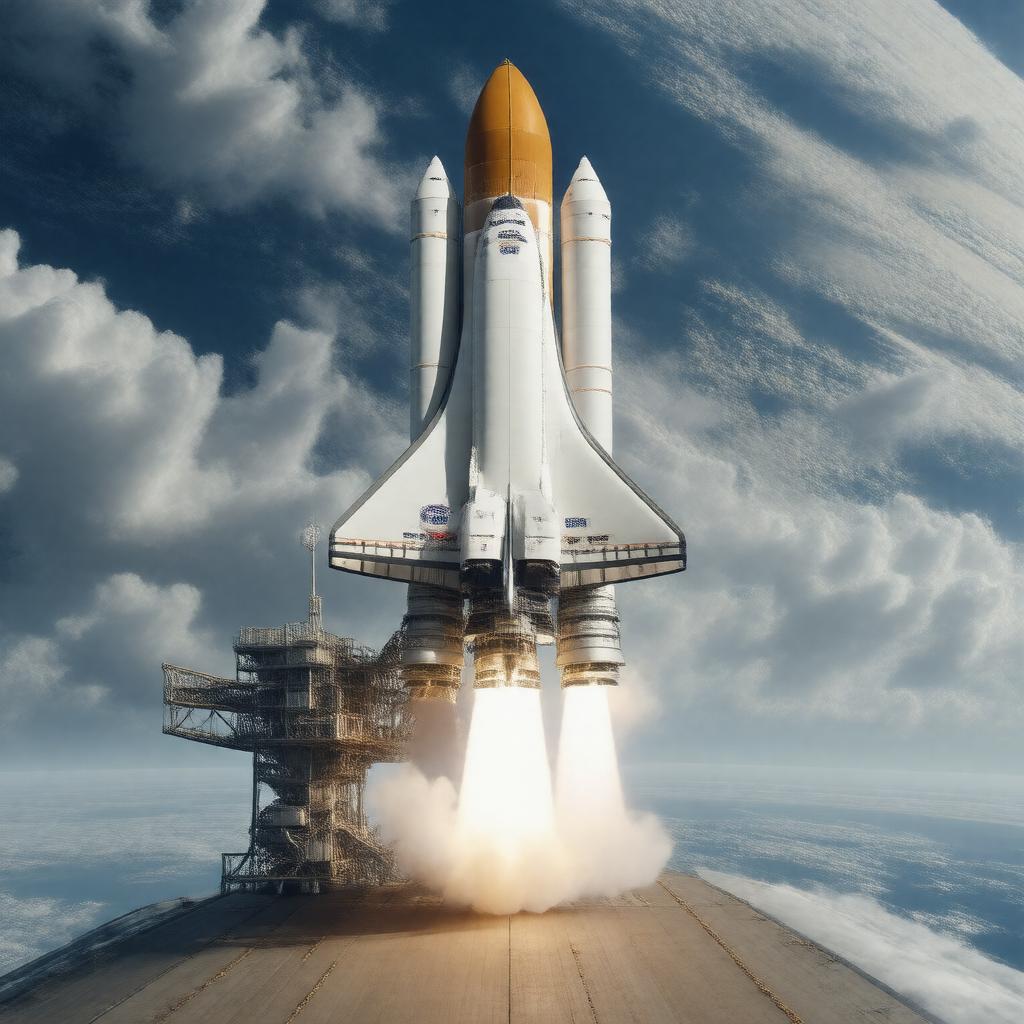Prompt
"Generate an image representing the Space Shuttle program, a human spaceflight program operated by NASA, with a focus on its iconic orbiter design, set against a backdrop of Earth's atmosphere, with the Kennedy Space Center launch site in the foreground, and including visual elements that reflect its notable missions, such as the Hubble Space Telescope deployment and International Space Station assembly; style: a realistic and awe-inspiring depiction of a technological marvel."

